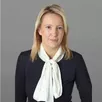The Department of Finance has taken the first step towards implementing a central register of the beneficial ownership of trusts, as required by the Fourth and Fifth Money Laundering Directives (MLD4 and MLD5).
Under new Regulations which came into effect on 29 January 2019, a trustee of an express trust must now collate information on the beneficial owners of that trust, and establish a register containing that information (the Beneficial Ownership Register).
Background
MLD4, as amended by MLD5, provides that Member States must require both corporates and trusts to establish registers of their beneficial owners. It also obliges Member States to establish central registers of beneficial ownership for both corporates and trusts.
In the case of both corporates and trusts, the information held by the relevant corporate or trust on its register of beneficial owners will ultimately be used to populate the central registers.
MLD4 and MLD5: Beneficial Ownership of Corporates
The requirement in Article 30 of MLD4 for a corporate to obtain information on its beneficial owners, and hold that information on an internal beneficial ownership register, was introduced in Ireland in November 2016 (read our briefing here).
As mentioned above, that information will be used to populate a central register of beneficial ownership of corporates (to be maintained by the Companies Registration Office). That central register is not yet in operation – further regulations are needed to facilitate its establishment, and MLD5 extended the deadline for its establishment to 10 January 2020.
MLD4 and MLD5: Beneficial Ownership of Trusts
Under Article 31 of MLD4, Member States must require trustees of express trusts to gather information on the trust's beneficial owners, and establish a Beneficial Ownership Register. The new Regulations (the European Union (Anti-Money Laundering: Beneficial Ownership of Trusts) Regulations 2019) gave immediate effect to that requirement on 29 January 2019.
As mentioned above, that information will eventually be used to populate the central register of beneficial ownership of trusts. MLD5 extended the deadline for the establishment of that central register to 10 March 2020. The equivalent deadline for the establishment of the central register of beneficial ownership of corporates is 10 January 2020. It is not yet clear who will be responsible for setting up and maintaining that central register in Ireland, and further regulations will be needed to facilitate its establishment. The information on that register will ultimately be accessible to competent authorities, financial intelligence units, and those that can demonstrate a legitimate interest in that information. In the meantime, as mentioned below, any Irish competent authority, and the Revenue Commissioners, will be able to request access to the trust's Beneficial Ownership Register.
What Trusts are in-scope?
Express trusts where either the trustees are resident in Ireland, or the trust is otherwise administered in Ireland, are covered by the new Regulations.
While not defined in the new Regulations, we expect that the term "express trust" as used in the Regulations is intended to refer to a trust where the subject-matter is certain, the objects are certain, the words relied on to create the trust are imperative, and any formalities specific to the type of trust are complied with.
Private family trusts are covered by the new Regulations, together with a range of other express trusts including those frequently encountered in finance and commercial transactions (for example, security trust arrangements, and declarations of trust in respect of shares), together with employee share schemes and benefits trusts.
Two other significant areas in which express trusts are used are:
- for custody of retirement savings moneys in the form of exempt approved occupational pension schemes; and
- as one of the three main organisational structures for charitable organisations. Charitable trusts are not the most frequently used form of charity but appear in specific areas such as grant making bodies and for holding property (and other substantial assets) for charities otherwise structured as corporate entities or unincorporated associations.
Funds
For specific information on how the new Regulations affect Irish unit trusts, read the February 2019 Legal and Regulatory Update published by our Asset Management and Investment Funds Group.
Who are the Beneficial Owners?
A beneficial owner of a trust is all or any natural persons who fall within any of the following categories in respect of an express trust:
- settlor of the trust,
- trustee of the trust,
- protector of the trust,
- beneficiary under the trust (or where the individuals benefiting from the trust have not yet been determined, the class of beneficiaries under the trust),
- person exercising ultimate control over the trust by direct or indirect ownership, or by other means.
Identifying the Beneficiary of Pension Trusts and Charitable Trusts
For both pension trusts and charitable trusts, identifying the "beneficiary under the trust" is unlikely to be straightforward:
Pension Trusts
In the event of the death of the member, there is usually a discretionary class of natural persons to whom benefits may be paid which does not include the original member. The original member does not become entitled to a vested benefit as an 'owner' unless and until certain eventualities in the pension scheme rules come to pass (and until that point has limited if any control over the trust). It is however possible to identify clear classes of beneficiary (being the employees and former employees and their dependents).
Charitable Trusts
The objects of the trust are, by definition, for public benefit but it is unlikely that any one beneficiary in the form of a natural person will have a vested entitlement or degree of control equivalent to ownership. As with pensions trusts depending on the circumstances a "reasonable" solution may be to identify broad classes of 'beneficiary' such as particular classes of service user.
What must the Trustee of an In-scope Trust do now?
The new Regulations took immediate effect, so trustees of in-scope trusts are now required to comply with the new requirements. An affected trustee must now:
- take "all reasonable steps" to gather and hold the
following information on the trust's beneficial owners (this
information should be adequate, accurate and current):
- name,
- date of birth,
- nationality, and
- residential address,
- set up a Beneficial Ownership Register for the trust, and enter
the above information on that register in respect of each
beneficial owner, together with:
- the date on which that individual was entered on the register as a beneficial owner, and
- the date on which that individual ceased to be a beneficial owner (if applicable),
- where the trustee learns of a change to the information held in respect of a beneficial owner, or learns that an individual has ceased to be a beneficial owner, it must update the trust's Beneficial Ownership Register,
- keep records in relation to the trust's Beneficial Ownership Register for at least 5 years after the last distribution under the trust, and (subject to certain exceptions) arrange for those records to be deleted at the end of that retention period.
Who else can access the Trust's Beneficial Ownership Register?
Even before trustees are required to make returns to the central register, the Revenue Commissioners, and any Irish competent authority, can request access to the trust's Beneficial Ownership Register, and the trustee must provide such access.
An Irish competent authority is permitted to disclose the information on that Beneficial Ownership Register to its counterparts in other Member States.
Trustees dealing with "Designated Persons"
If a trustee of an in-scope trust, acting in that capacity, enters into an "occasional transaction" with a "designated person" under Irish AML legislation (the Criminal Justice (Money Laundering and Terrorist Financing) Acts 2010 to 2018), or forms a business relationship with such a "designated person", the trustee must now:
- tell the designated person that it is acting as trustee, and
- if asked by the designated person to do so, give that designated person information identifying the beneficial owners of the trust (and the trustee must give updated information if that information changes during the course of the business relationship with the designated person).
An "occasional transaction" is one in respect of which a "designated person" is required to carry out customer due diligence under Irish AML legislation.
A "designated person" can include a bank or financial institution, auditor, accountant, tax advisor, an independent legal professional (in respect of certain services), a trust or company service provider, a property service provider or certain other persons acting in Ireland in the course of business carried on by them in Ireland.
The Obligations on Trustees and Corporates are not identical
The Beneficial Ownership Regulations for trusts are, in a number of respects, different to those for corporates. Notably:
- there are no percentage thresholds that an individual must satisfy before being classified as a beneficial owner. If an individual comes within one of the categories of persons referred to in 'Who are the beneficial owners?' above, they are in-scope,
- the steps that a corporate must take to try to identify its beneficial owners are more prescriptive than the "all reasonable steps" that the trustee must take,
- there is no obligation on a beneficial owner of a trust to inform the trustee that he is a beneficial owner if the trustee has not sought information from him, or entered his details in the register (such an obligation is imposed on the beneficial owners of corporates),
- there is no obligation on the beneficial owner of a trust to proactively notify the trustee if he ceases to be a beneficial owner, or if the information held about him on the Beneficial Ownership Register becomes inaccurate (such an obligation is imposed on the beneficial owners of corporates).
Sanctions
Any failure by a trustee to obtain and hold information on the trust's beneficial owners, to establish the Beneficial Ownership Register, to keep the Beneficial Ownership Register up-to-date, or to comply with the record-retention obligations, is a criminal offence, exposing the trustee to a fine of up to €5,000.
It is also important to note that a person who is aggrieved by the inclusion or omission of his/her name from a trust's Beneficial Ownership Register can apply to the High Court to have the Register rectified. Such a High Court application can also be made by a beneficial owner other than the party whose name was, or was not, included. The High Court has been given express jurisdiction to award compensation for any loss sustained by any aggrieved party.
Next steps and how we can help you
If you are a trustee you need to be aware of your new obligations and take the actions required by the Regulations.
We can assist trustees in the creation and maintenance of a Beneficial Ownership Register, assist in taking the steps necessary to discharge their obligations under the Regulations and advise trustees on requests made for access and duties arising on occasional transactions.
Other related developments
As mentioned above, the provisions of MLD4 requiring corporates to establish registers of their beneficial owners were introduced in Ireland in November 2016. The central register of beneficial ownership for corporates has not yet been launched by the Companies Registration Office, but MLD5 extended the deadline for establishing that central register to 10 January 2020. The remainder of MLD4 has been transposed into Irish law. Our recent briefings contain further information:
- AML Update: New Irish Act comes into force (November 2018)
- AML Update: Do you need to register with the Central Bank? (November 2018)
Regarding MLD5, it was published in the Official Journal on 19 June 2018 (with Member States having until the end of 2019 to transpose it into national law). For further information, read our recent briefings:
The Minister for Justice has also published the General Scheme of the Criminal Justice (Money Laundering and Terrorist Financing) (Amendment) Bill 2019, which will ultimately transpose MLD5 into Irish law. We will issue further updates when the Bill itself is published.
This article contains a general summary of developments and is not a complete or definitive statement of the law. Specific legal advice should be obtained where appropriate.







